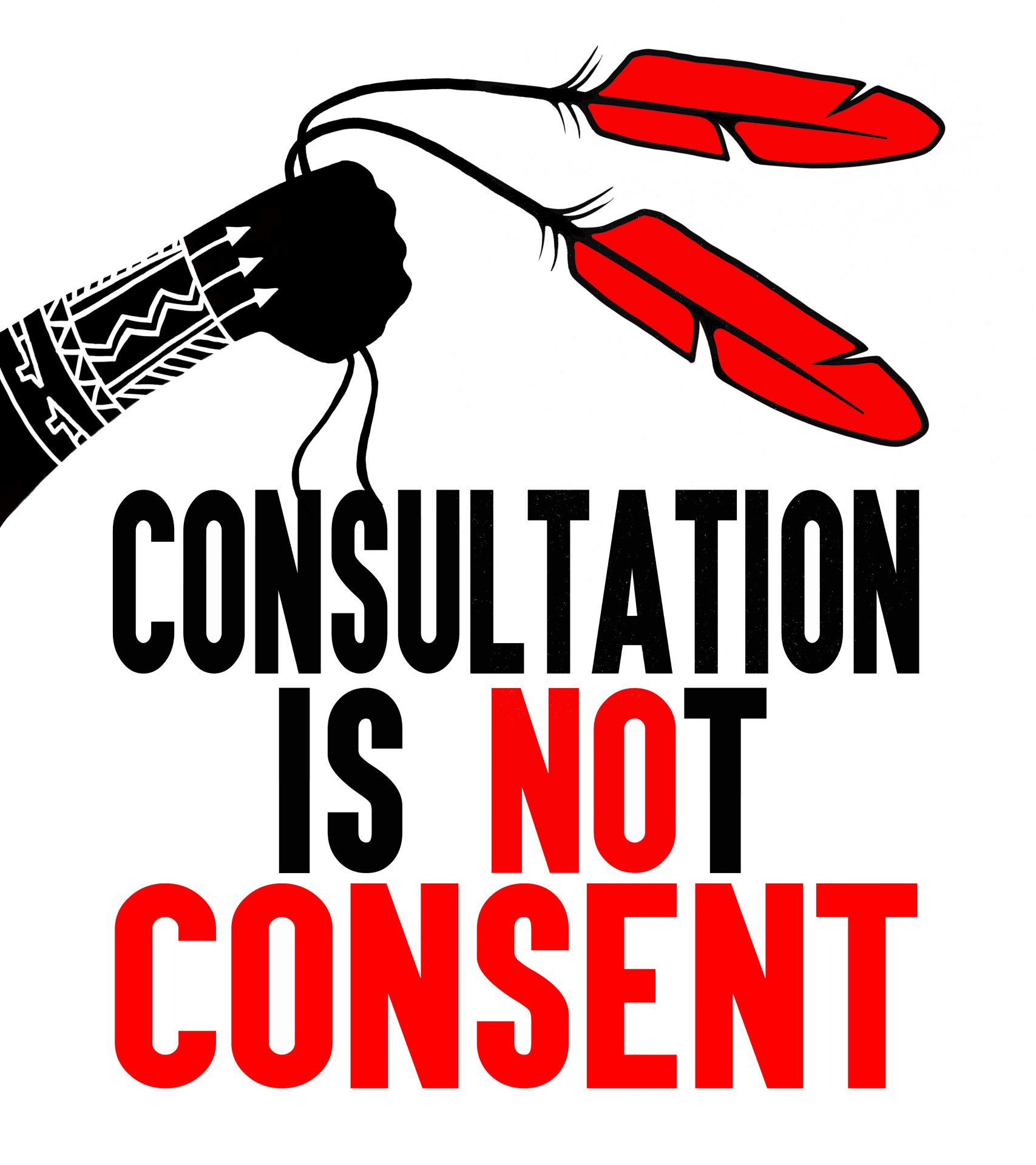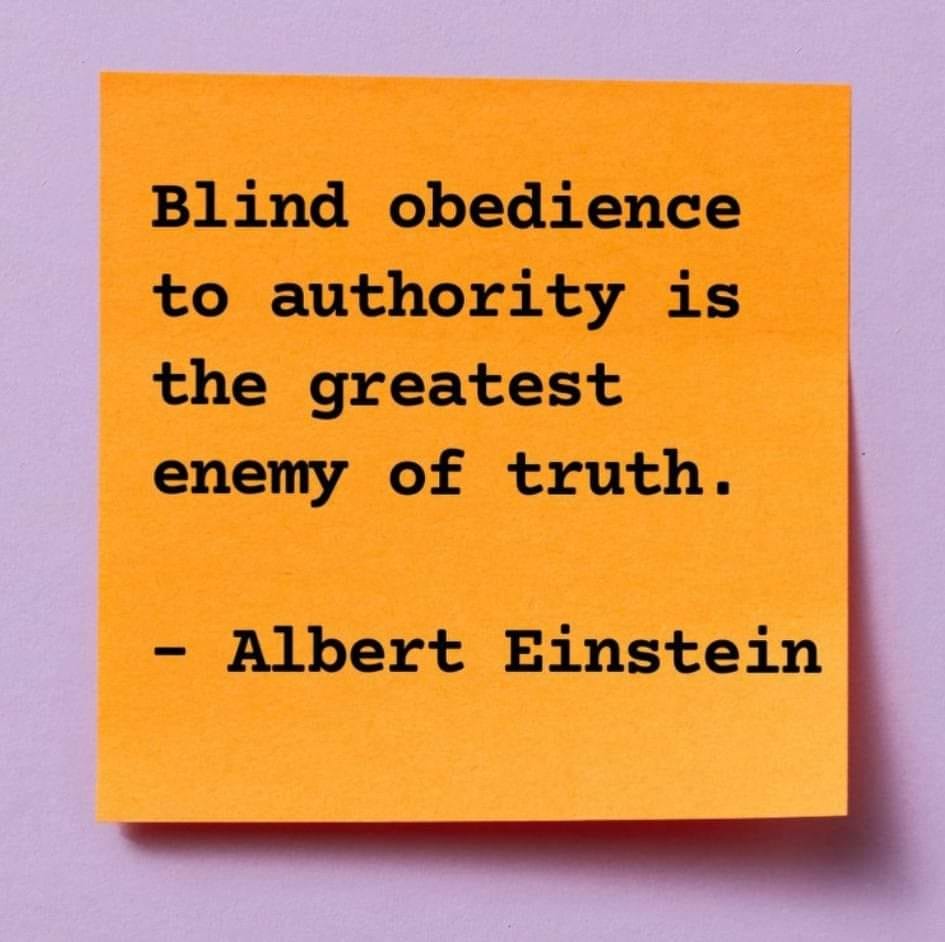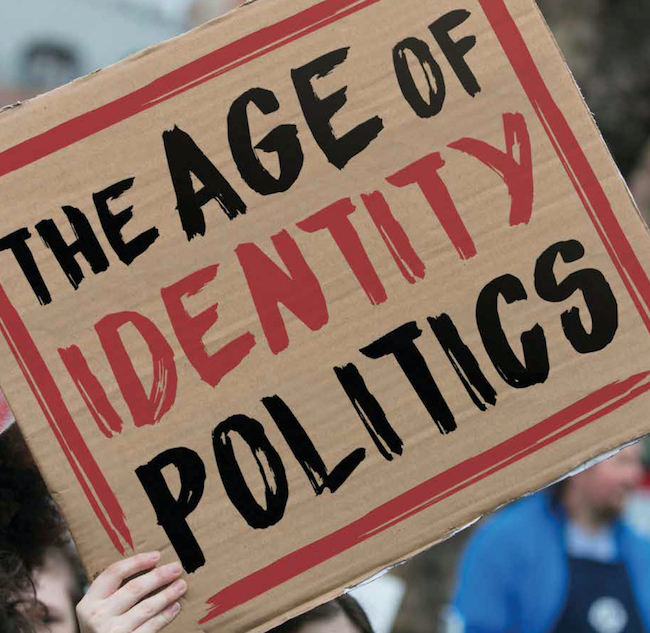(Source of Information NOVEMBER 27, 2017 12:12PM BY DAVID FARRAR) Ghahraman defended not prosecuted the genociders in Rwanda. Paul Little reports at the Herald an interview with Green MP Golriz Ghahraman: In 2008 I’d been working in new zealand as a junior barrister for two and a half years. The next logical step would have been to go out on my own, but I got accepted to do a masters degree at Oxford. While I was waiting to fly to England, I met a defence lawyer working for the Rwanda Tribunal. He said: “You should come over, we need a lawyer at the coalface.” I’d gone into law in the first place to do human rights law. I spent about three months as an intern then went to The Hague on a consultancy at the Yugoslavia Tribunal, then was offered a job as a lawyer for the Rwanda Tribunal. So she was recruited by a defence lawyer at the Rwanda Tribunal? So did she prosecute the genociders or defend them?
And even with the UN, defence lawyers didn’t have as many resources as the other side. To me it’s important to have that fair process. No matter how guilty someone looks, guilt needs to be established. But the defence team didn’t get paper for the photocopiers — it was like even the UN didn’t really believe in it. From back here, having worked in court, I know the defence gets about half the resources of the prosecution. That’s really frightening — there’s definitely demographics involved. So she wasn’t prosecuting the war criminals in Rwanda, but defending them. And complains the UN didn’t give them enough resources to defend them better! The total cost of the trials was in fact around $1 billion! Now I had no idea before reading this article that her work in Rwanda was defending the war criminals, not prosecuting them. I doubt anyone else knew either. Let’s look at what her Green Party CV says:
Her studies at Oxford, and work as a lawyer for the United Nations and in New Zealand, have focused on enforcing human rights and holding governments to account. Golriz has lived and worked in Africa, The Hague and Cambodia putting on trial world leaders for abusing their power, and restoring communities after war and human rights atrocities, particularly empowering women engaged in peace and justice initiatives. Now 99% of people who read that would think she was working at prosecuting the abusers, not defending them.
Look at this Guardian article from a few weeks ago: It was in this South Pacific melting pot, says Ghahraman, that she acquired the confidence to study human rights law at oxford university, and, later, to stand up in court representing the UN in tribunals prosecuting some of the world’s worst war criminals, including perpetrators of the Rwandan genocide. Now again 99% of people reading this would assume she was prosecuting in Rwanda. But she was actually defending the perpetrators of the Rwandan genocide. Former Labour staffer Phil Quin has actually worked in Rwanda with the survivors of the genocide there. He is highly unimpressed: Everyone deserves a defense, but please don’t preen as a human rights advocates when you dedicated a year to keeping these killers from justice. And defense underfunded?? Don’t make me laugh. ICTR spent 500m defending these guys. — Phil Quin (@philquin) November 26, 2017
There is nothing wrong with being a defence lawyer – even for war criminals. As Quin, says everyone is entitled to a defence. A great mate of mine is a defence lawyer. But the issue here is the way the Greens have selectively published material that makes it looks like she was prosecuting, not defending. She did later go on to prosecute in Cambodia, and again there is nothing wrong with having started as a defence lawyer so you could gain experience to become a prosecutor. But this is not the story that we were told. Also she was not assigned as a lawyer to defend the Rwanda war criminals. She was a volunteer as Quin again highlights: Critical point. She did so not as part of an official legal team, but as a VOLUNTEER. Of all the ways to save the world, she chose to send killers back to the villages where their victims’ families are trying to rebuild their lives. — Phil Quin (@philquin) November 26, 2017. uin also highlights one of the persons she defended was Joseph Nziorera. Hook, line and sinker. She’s a straightforward genocide denier. Goodbye, hope you enjoyed your few weeks in Parliament. I’m sure some Assad henchmen could do with your help. . #Rwanda pic.twitter.com/LhNgume3xo — Phil Quin (@philquin) November 26, 2017
Nzirorera was considered one of the main initiators of the Rwandan genocide. Now again a legal system needs prosecutors and defenders. The issue for me isn’t that she worked as a defence lawyer for war criminals, but that all the promotional material to date has given the impression she was prosecuting in Rwanda, not defending. Sure if you look all the way down the Linked In profile, you see the details. So it isn’t that she personally has made a false statement about her work. It is that the narrative built around her has been incomplete and misleading. the guardian article is a great example of that – makes you think she was a prosecutor in Rwanda. The Greens website states her work in Africa was putting on trial world leaders – highly misleading. Her own maiden speech glosses over her work in Rwanda: I was living in Africa working on genocide trials where I then learned how prejudice turns to atrocity. Politicians scapegoating groups, as a group, for any social ills, dehumanising language in the media, used for political gain-Every time I see that I think: That’s how is how it starts. I saw that at the Rwanda Tribunal, at The Hague and when I prosecuted the Khmer Rouge in Cambodia. Very clever. It doesn’t state she prosecuted in Rwanda but you clearly gain that impression as she lumps it in with prosecuting in Cambodia.
Now imagine this isn’t a Green MP. Imagine this is a National MP who had defended war criminals and genociders in Rwanda. Do you think Labour and Green MPs would say “Well someone has to do it, and it was good work experience, so that’s fine”. Or would they be condemning them at every turn? Green MP Golriz Ghahraman on a life-changing year in Rwanda 27 Nov, 2017 04:39 PM (https://www.nzherald.co.nz/nz/green-mp-golriz-ghahraman-on-a-life-changing-year-in-rwanda/BVMN2BQWGVAPNVNQFB2ZQEWQEU/?c_id=1&objectid=11947906 )
In 2008 I’d been working in New Zealand as a junior barrister for two and a half years. The next logical step would have been to go out on my own, but I got accepted to do a masters degree at Oxford. While I was waiting to fly to England, I met a defence lawyer working for the Rwanda Tribunal. He said: “You should come over, we need a lawyer at the coalface.” I’d gone into law in the first place to do human rights law. I spent about three months as an intern then went to The Hague on a consultancy at the Yugoslavia Tribunal, then was offered a job as a lawyer for the Rwanda Tribunal. So it was my year of international humanitarian law. For me it was almost cathartic, because as a child I had to escape mass crimes, essentially being committed by governments and based on prejudice. When you get to look at the start of those things, you realise it’s not that mysterious. The Rwandan genocide started from a lack of democracy and human rights and people scapegoating other groups. Politicians cash in on prejudice. The mission was to individualise blame so groups don’t keep going in a cycle of violence. The point was to leave a legacy of everyone being equal before the law and change the culture of impunity so you don’t get to do whatever you want just because you’re the president. The Iranian government did things to us with impunity. And the rest of what you realise is poverty. We were living in Tanzania, in a well-funded UN institution with security all around it. We were in a big, flash complex, eating sanitised salads. We wouldn’t get cholera if we drank the water, because we had water machines at every turn. But at nights when we went to the village pub, it was a different world. And we weren’t really helping with that. And even with the UN, defence lawyers didn’t have as many resources as the other side. To me it’s important to have that fair process. No matter how guilty someone looks, guilt needs to be established. But the defence team didn’t get paper for the photocopiers — it was like even the UN didn’t really believe in it. From back here, having worked in court, I know the defence gets about half the resources of the prosecution. That’s really frightening — there’s definitely demographics involved. And when I finally went to Oxford to do my masters, I had all this beautiful space. I sat studying in beautiful libraries with no funding issues and with the privilege of time to study. To have that when you know these things are happening elsewhere was surreal. I’d fly back and forth, interviewing people who said they’d been tortured, then go back to Oxford, where my room was cleaned every day. https://www.nzherald.co.nz/nz/profile-on-party-website-of-mp-who-defended-butcher-of-bosnia-now-changed-to-be-more-accurate/Z3T3R2WIFJNXTWTQEO74D4KIOU/
Profile on party website of MP who defended Butcher of Bosnia now changed to be more accurate Author Derek Cheng 28 Nov, 2017. Green MP Golriz Ghahraman worked as part of the legal defence team for Bosnian Serb wartime leader Radovan Karadžić, who was found guilty of genocide and crimes against humanity. Party co-leader James Shaw is standing by his MP, saying her work on international tribunals as both a defence and prosecution lawyer is all part of a robust justice system. But her profile page on the Green Party website has now been changed to more accurately reflect the legal defence work she did at the Rwanda Tribunal and The Hague, and the prosecution work she did at the Khmer Rouge Tribunal. In a series of tweets this week, former Labour staffer Phil Quin criticised Ghahraman’s work at the Rwanda Tribunal, saying she volunteered to defend “the worst killers known to man” and calling her a genocide-denier. Green Party co-leader James Shaw is standing by MP Golriz Ghahraman, saying her work on international tribunals as both a defence and prosecution lawyer is all part of a robust justice system. “Any MP who acted as a voluntary intern to defend war criminals, and authors papers that deny the Rwandan genocide, must resign,” said Quin, who lived and worked in Rwanda for several years.
In a comment piece on Newsroom, he added: “It’s one thing for a UN defence lawyer to be assigned to defend ratbags. It’s quite another to seek them out in a voluntary capacity.”Ghahraman worked as an unpaid intern as part of a team that defended Joseph Nzirorera, who died before he could be convicted of genocide, and in a paid position as part of a team representing pop singer Simon Bikindi, who was convicted for incitement to genocide. Quin published a photo of a smiling Ghahraman with Bikindi on Twitter today. Former Bosnian Serb leader Radovan Karadzic is escorted in to make an initial appearance at the International Criminal Tribunal for the former Yugoslavia. Photo / Getty. Shaw said Quin’s attacks were politically motivated. “I think Phil knows as well as anybody that a functioning justice system requires both a rigorous prosecution and a rigorous defence in order to make sure that the trial actually delivers the result its intended to.”
Ghahraman said everyone was entitled to a fair trial, “including those accused of very egregious crimes”. “I would essentially be letting down the human rights framework if I thought anything other than that. My work on defence and prosecution has always been equally a point of pride for me.” Her profile page on the Green Party website has now been changed, following her admission that it “could be clearer”. It previously said: “Golriz has lived and worked in Africa, The Hague and Cambodia, putting on trial world leaders for abusing their power.” Now it says: “Golriz worked for United Nations Tribunals as part of both defence (Rwanda, the former Yugoslavia) and prosecution (Cambodia) teams.” But she said she has never hid her defence work, and that it’s “certainly not something I’m ashamed of”. “It’s absolutely offensive to say that I deny genocide, because there’s nothing that’s been more important to me than to highlight genocide as an international crime.” Legal expert Andrew Geddis came to Ghahraman’s defence today. Writing for the Pundit blog, he wrote: “Ghahraman played a necessary (if hard) role in an internationally established institution designed to resolve in an open and legitimate fashion individual guilt for horrible actions. “Defending nasty individuals is just a part of what international human rights lawyers do.” Golriz Ghahraman says genocide-denier comments ‘absolutely offensive’
Derek Cheng 28 Nov, 2017 05:00 AM
(https://www.nzherald.co.nz/nz/golriz-ghahraman-says-genocide-denier-comments-absolutely-offensive/TT3GDQI3YM2G7AOOLOLDPQUGTI/ ) Green MP Golriz Ghahraman says it is “absolutely offensive” to be called a genocide-denier, and insists she has not misled the public over defending people accused of genocide in Rwanda. But she admits that her profile page on the Green Party website, which states that she has put African leaders on trial for abusing their power, “could be clearer”. In a series of tweets today, former Labour staffer Phil Quin criticised Ghahraman’s work at the Rwanda Tribunal, saying she defended “the worst killers known to man” and calling her a genocide-denier. “Any MP who acted as a voluntary intern to defend war criminals, and authors papers that deny the Rwandan genocide, must resign,” said Quin, who lived and worked in Rwanda for several years. “Call me old fashioned, but I think volunteering as a ‘life changing experience’ to defend mass murderers (who had the priciest lawyers in the business) should disqualify one from becoming a member of the NZ Parliament,” he said in another tweet. The posts raised questions about whether Ghahraman had misled the public into believing that she had prosecuted those responsible for genocide in Rwanda, when she had in fact been part of defence teams.
Her profile page on the Green party website says: “Golriz has lived and worked in Africa, The Hague and Cambodia, putting on trial world leaders for abusing their power.” Ghahraman admitted that her profile page, which she didn’t write, “could be clearer, but it’s certainly not false”. But she said she has never hid her defence work, that it’s “certainly not something I’m ashamed of”, and that international criminal justice needs both the defence and the prosecution to work well to ensure a robust system. “It’s absolutely offensive to say that I deny genocide, because there’s nothing that’s been more important to me than to highlight genocide as an international crime. “The reason we have these trials is to say that genocide is not okay. But that we want it dealt with in a human rights-based process, a fair process that includes a defence and a prosecution and judges and proper investigation.” Joseph Nzirorera died before he could be convicted of genocide in Rwanda. She said that she worked as an unpaid intern as part of a team that defended Joseph Nzirorera, who died before he could be convicted of genocide, and in a paid position as part of a team representing pop singer Simon Bikindi, who was convicted for incitement to genocide.
She also worked on the pre-trial of Bosnian Serb wartime leader Radovan Karadžić, who was found guilty of genocide and crimes against humanity. She worked on the prosecution at the Khmer Rouge Tribunal. Quin later tweeted that he did not care whether Ghahraman misled the public, but he did care that she defended people in the Rwanda Tribunal in the first place. Ghahraman said she has never met Quin, but that his comments showed “an embarrassing lapse in understanding”. “No one is saying there is no such thing as genocide. It’s like saying a defence lawyer [defending someone charged with murder] in our justice system here is a murder-denier. “My CV is on LinkedIn. It’s certainly not something I’m ashamed of. It’s the human rights model. We have to work on both sides.”
(https://www.nzherald.co.nz/nz/barry-soper-political-perception-isnt-always-reality/GNBLBK3VVGRATH36K7FBAEUGV4/ ) Barry Soper: Political perception isn’t always reality Barry Soper 28 Nov, 2017. Politics is most certainly about perception and if you look at the publicity blurb surrounding the first refugee elected to our Parliament you would come away thinking Golriz Ghahraman who was born in Iran was a human rights battler, pure and simple. In her maiden speech she talked about living in Africa, working on genocide trials and learning how prejudice turns into atrocity. She waxed about politicians scapegoating groups for any social ills, using dehumanising language in the media for their own gain. Ghahraman went on to say she saw that at the Rwanda Tribunal, at The Hague and when she prosecuted the Khmer Rouge in Cambodia. Now listening to that you’d think she was the battler she’s been painted as. And that was reinforced by The Greens who are very good at presenting the narrative that suits their purpose, although the narrative surrounding their former co-leader Metiria Turei obviously got out of control and almost led to their undoing. In their blurb about their new MP, The Greens said her work has focused on enforcing human rights and holding governments to account. Golriz, they tell us, has lived and worked in Africa, The Hague and Cambodia, putting on trial world leaders for abusing their power and restoring communities after war and human rights atrocities.
Now that leaves the clear impression she was the champion of bringing these people to justice. But in fact at the Rwandan Tribunal she was representing the war criminals in the genocide of around eight hundred thousand Tutsis. She complained about how poorly resourced the defence was. It was as though the United Nations didn’t really believe in the process, she opined. She’s now saying she wasn’t responsible for The Greens’ blurb which may be the case. But it seems she did little to correct it. Few would argue that at any trial, regardless of how heinous the crime is, there’s prosecution and defence. Even the Nazis were defended at Nuremberg. And that was reinforced by The Greens who are very good at presenting the narrative that suits their purpose, although the narrative surrounding their former co-leader Metiria Turei obviously got out of control and almost led to their undoing. In their blurb about their new MP, The Greens said her work has focused on enforcing human rights and holding governments to account. Golriz, they tell us, has lived and worked in Africa, The Hague and Cambodia, putting on trial world leaders for abusing their power and restoring communities after war and human rights atrocities.
Now that leaves the clear impression she was the champion of bringing these people to justice. But in fact at the Rwandan Tribunal she was representing the war criminals in the genocide of around eight hundred thousand Tutsis. She complained about how poorly resourced the defence was. It was as though the United Nations didn’t really believe in the process, she opined. She’s now saying she wasn’t responsible for The Greens’ blurb which may be the case. But it seems she did little to correct it. Few would argue that at any trial, regardless of how heinous the crime is, there’s prosecution and defence. Even the Nazis were defended at Nuremberg. You could argue though for Ghahraman to initially volunteer to work for the Rwandan defence and champion herself as a human rights lawyer leaves the wrong impression. But in 36-year-old’s defence at least she fronted up to argue her case, insisting she’s never denied that she worked for the perpetrators of widespread abuse. That may be so, but others and she herself have conveniently overlooked it in presenting the positive. She maintains she simply contributed to the accountability mechanism which is why she’s worked for both sides. It’s just that one side has been consistently and conveniently highlighted over the other. She maintains she simply contributed to the accountability mechanism which is why she’s worked for both sides. It’s just that one side has been consistently and conveniently highlighted over the other.
29th November 2017 https://www.nzherald.co.nz/nz/green-mp-golriz-ghahraman-defended-senior-rwandan-hutu-man-in-extradition-case/EDXOYOMW6QFED4ITA634LGA62M/ Green MP Golriz Ghahraman defended senior Rwandan Hutu man in extradition case Green MP Golriz Ghahraman has been accused of misrepresenting her role as a United Nations Human Rights lawyer – so what, if anything, did she do wrong? .The Law Society has jumped to the defence of Green MP Golriz Ghahraman, who is facing fresh claims that she defended a senior Hutu figure in New Zealand from extradition to Rwanda to face charges of genocide. The details of the case remain the subject of extensive suppression orders. Ghahraman has been in the spotlight after an interview with the Weekend Herald in which she openly talked about her internship and defence work with the UN for the Rwanda Tribunal. She has worked as an unpaid intern as part of a team that defended Joseph Nzirorera, who died before he could be convicted of genocide, and in a paid position as part of a team representing pop singer Simon Bikindi, who was convicted for incitement to genocide.
The Law Society has jumped to the defence of Green MP Golriz Ghahraman, who is facing fresh claims that she defended a senior Hutu figure in New Zealand from extradition to Rwanda to face charges of genocide. The details of the case remain the subject of extensive suppression orders. Ghahraman has been in the spotlight after an interview with the Weekend Herald in which she openly talked about her internship and defence work with the UN for the Rwanda Tribunal. She has worked as an unpaid intern as part of a team that defended Joseph Nzirorera, who died before he could be convicted of genocide, and in a paid position as part of a team representing pop singer Simon Bikindi, who was convicted for incitement to genocide. At The Hague, she worked on the pre-trial defence of Bosnian Serb wartime leader Radovan Karadžić, who was found guilty of crimes against humanity. She also worked on the prosecution at the Khmer Rouge Tribunal. Last night she changed the wording of her profile page on the Green Party website, following criticisms that it implied she had prosecuted – and not defended – world leaders for abusing their power. Former Labour staffer Phil Quin, who spent three years working in Rwanda, said Ghahraman defended the extradition of a “very senior Hutu” accused of crimes against humanity. The man, who refutes the accusations, came to New Zealand and was granted refugee status and citizenship. “When he was found … and ordered to be extradited to face his accusers, who was the defence lawyer that opposed his extradition?” Quin asked Newstalk ZB’s Leighton Smith. “I cannot for the life of me comprehend why any lawyer or moral human being would opt to engage in the defence of these people.”
Ghahraman confirmed on Newshub’s AM Show that she had worked for a Rwandan refugee in an extradition case, but was reluctant to mention details citing suppression orders. “We were trying to get a fair process around it here so that everyone could present their witness evidence. That’s an ongoing case that I’m not on anymore.” Quin said he was outraged by Ghahraman’s moral judgement, rather than the abstract legal principles of every defendant deserving a fair trial. He said he had received hundreds of responses on Twitter from “disgusted” Rwandans reacting to a photo of a beaming Ghahraman with Bikindi. “Those kinds of moral choices – forget about the law – that bring into question her judgement as a leader in our Parliament.” Quin asked Ghahraman to endorse the International Criminal Tribunal for Rwanda genocide account, rather than the account that her defence team was part of.
A spokeswoman for the Greens said Ghahraman had already expressed her views on the Rwandan genocide and would not be commenting further. Ghahraman has rejected suggestions that she was misleading about the nature of her work, and says it is nothing to be ashamed of. She has said the work, whether for the defence or the prosecution, is important in establishing the rule of law and the UN human rights model. “It’s not about denying genocide. That’s what I find offensive. We’re all there, the UN is there to say that genocide is a crime … This is what these trials are about.” In an unusual move, the Law Society issued a press release standing by Ghahraman, saying it was wrong to identify a lawyer with their client’s actions. Convenor of the Law Society’s Criminal Law Committee Steve Bonnar QC said defence lawyers often had no choice about who to act for. “The personal attributes of the prospective client and the merits of the matter upon which the lawyer is consulted are not considered good cause for refusing to accept instructions. “The defence lawyer is required to put the prosecution to proof in obtaining a conviction, regardless of any personal belief or opinion of the lawyer as to the client’s guilt or innocence. It is not the role of the lawyer to determine a client’s guilt or innocence – that is the role of the Tribunal, Judge or jury hearing the case.”
Green MP Golriz Ghahraman defended senior Rwandan Hutu man in extradition case 29th November 2017. https://www.nzherald.co.nz/nz/green-mp-golriz-ghahraman-defended-senior-rwandan-hutu-man-in-extradition-case/EDXOYOMW6QFED4ITA634LGA62M/. The Law Society has jumped to the defence of Green MP Golriz Ghahraman, who is facing fresh claims that she defended a senior Hutu figure in New Zealand from extradition to Rwanda to face charges of genocide.The details of the case remain the subject of extensive suppression orders. Ghahraman has been in the spotlight after an interview with the Weekend Herald in which she openly talked about her internship and defence work with the UN for the Rwanda Tribunal. She has worked as an unpaid intern as part of a team that defended Joseph Nzirorera, who died before he could be convicted of genocide, and in a paid position as part of a team representing pop singer Simon Bikindi, who was convicted for incitement to genocide. At The Hague, she worked on the pre-trial defence of Bosnian Serb wartime leader Radovan Karadžić, who was found guilty of crimes against humanity. She also worked on the prosecution at the Khmer Rouge Tribunal. She changed the wording of her profile page on the Green Party website, following criticisms that it implied she had prosecuted – and not defended – world leaders for abusing their power. Former Labour staffer Phil Quin, who spent three years working in Rwanda, said Ghahraman defended the extradition of a “very senior Hutu” accused of crimes against humanity. The man, who refutes the accusations, came to New Zealand and was granted refugee status and citizenship. “When he was found … and ordered to be extradited to face his accusers, who was the defence lawyer that opposed his extradition?” Quin asked Newstalk ZB’s Leighton Smith. “I cannot for the life of me comprehend why any lawyer or moral human being would opt to engage in the defence of these people.”
Ghahraman confirmed on Newshub’s AM Show that she had worked for a Rwandan refugee in an extradition case, but was reluctant to mention details citing suppression orders. “We were trying to get a fair process around it here so that everyone could present their witness evidence. That’s an ongoing case that I’m not on anymore.” Quin said he was outraged by Ghahraman’s moral judgement, rather than the abstract legal principles of every defendant deserving a fair trial. He said he had received hundreds of responses on Twitter from “disgusted” Rwandans reacting to a photo of a beaming Ghahraman with Bikindi. “Those kinds of moral choices – forget about the law – that bring into question her judgement as a leader in our Parliament.” Quin asked Ghahraman to endorse the International Criminal Tribunal for Rwanda genocide account, rather than the account that her defence team was part of.
A spokeswoman for the Greens said Ghahraman had already expressed her views on the Rwandan genocide and would not be commenting further. Ghahraman has rejected suggestions that she was misleading about the nature of her work, and says it is nothing to be ashamed of. She has said the work, whether for the defence or the prosecution, is important in establishing the rule of law and the UN human rights model. “It’s not about denying genocide. That’s what I find offensive. We’re all there, the UN is there to say that genocide is a crime … This is what these trials are about.”In an unusual move, the Law Society issued a press release standing by Ghahraman, saying it was wrong to identify a lawyer with their client’s actions. Convenor of the Law Society’s Criminal Law Committee Steve Bonnar QC said defence lawyers often had no choice about who to act for. “The personal attributes of the prospective client and the merits of the matter upon which the lawyer is consulted are not considered good cause for refusing to accept instructions. “The defence lawyer is required to put the prosecution to proof in obtaining a conviction, regardless of any personal belief or opinion of the lawyer as to the client’s guilt or innocence. It is not the role of the lawyer to determine a client’s guilt or innocence – that is the role of the Tribunal, Judge or jury hearing the case.”
WAKE UP NZ: What are your thoughts on this?
Jordan Williams: Golriz Ghahraman saga reveals Greens in-fighting By Jordan Williams 29 Nov, 2017 https://www.nzherald.co.nz/nz/jordan-williams-golriz-ghahraman-saga-reveals-greens-in-fighting/C2ZROPG3V4KQPRGMODNZFBB254/
...






